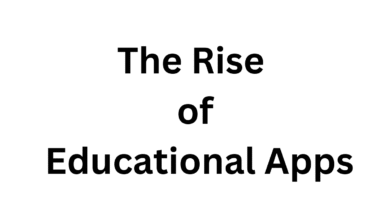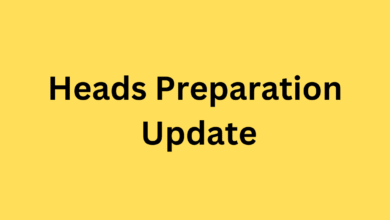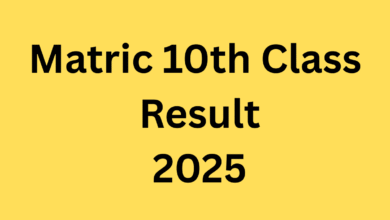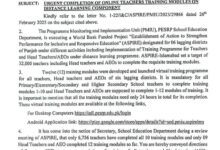ADLP complete solution module 1 to 12 pdf
ADLP complete solution module 1 to 12 pdf
Contents
Overview of ADLP Training Program
The Accelerated Development Learning Program (ADLP) is a comprehensive training initiative designed to enhance professional skills, particularly for educators, through a structured curriculum. Spanning multiple modules, the program integrates videos, quizzes, and handouts to deliver a blend of theoretical knowledge and practical application. This article explores the structure, content, and benefits of the ADLP training program, with insights drawn from its detailed curriculum.
Program Structure and Content
The ADLP training program is organized into multiple modules, each focusing on specific skills and competencies. The curriculum includes a mix of instructional videos, quizzes, and handouts, ensuring a multifaceted learning experience. Below is a breakdown of the key components across selected modules:
- Instructional Videos: These range from 1 to 8 minutes, covering topics such as mentoring, coaching, and reflective practices.
- Quizzes: Multiple-choice and true/false quizzes assess understanding, with scores often reported (e.g., 80%, 86.67%).
- Handouts: PDF resources provide supplementary material for deeper exploration of concepts.
Module Highlights
| Module | Key Topics | Activities | Quiz Scores |
|---|---|---|---|
| Module 3 | Mentoring Basics | Quiz with 7 questions | All B except Q14=D |
| Module 4 | Coaching Cycle | Videos (2:02m–8:25m), 3 quizzes, handouts | Quiz 1: 80%, Quiz 2: 80%, Quiz 3: Mixed T/F |
| Module 5 | Distance Education Needs | Videos (1:38m–5:08m), 5 quizzes, handouts | Quiz 1: 80%, Quiz 5: 80%, End of Module: 85.71% |
| Module 8 | Remote Mentoring Strategies | Videos (1:42m–5:29m), survey, 3 quizzes | Quiz 1: 90%, Quiz 3: 87.86% |
| Module 12 | Reflective Practice & Feedback | Videos, quizzes on Gibbs Reflective Cycle | End of Module: Mixed A, B, C, D |
For more details on effective mentoring, visit Edutopia’s Guide to Mentoring.
Key Learning Outcomes
The ADLP program emphasizes practical skills for educators, particularly in mentoring and coaching. Here are some core outcomes:
- Mentoring vs. Coaching:
- Mentoring focuses on long-term guidance and personal growth, ideal for new teachers like Sarah (Module 10, Quiz 1).
- Coaching targets short-term, goal-oriented improvements, suitable for experienced teachers like Saleem (ASCD on Coaching).
- Reflective Practice:
- Utilizes Gibbs Reflective Cycle, covering Description, Feelings, Evaluation, and Action Plan stages.
- Encourages critical self-assessment to improve teaching practices.
- Digital Tools:
- Platforms like Google Classroom and Zoom/Google Meet are highlighted for remote learning and mentoring (Module 11, Quiz 4).
- Feedback Strategies:
- Emphasizes actionable, specific feedback to enhance teaching effectiveness (Module 12, Quiz).
Benefits of ADLP Training
The ADLP program offers several advantages for educators:
- Structured Learning Path: Combines videos, quizzes, and handouts for a comprehensive experience.
- Practical Application: Focuses on real-world scenarios, such as classroom management and crisis communication.
- Flexibility: Incorporates digital platforms, making it suitable for distance education.
- Continuous Improvement: Encourages reflective practices and actionable feedback to foster professional growth.
For additional resources on reflective teaching, explore TeachThought’s Reflective Practice Guide.
FAQs
Q1: What is the primary difference between mentoring and coaching in the ADLP program?
A1: Mentoring is less structured, focusing on long-term growth and mutual interests, while coaching is structured, targeting specific short-term goals (Module 11, Quiz).
Q2: How does the program address distance education challenges?
A2: It covers Maslow’s hierarchy of needs, emphasizing physiological (hardware, internet) and belonging needs (virtual community) to support remote learning (Module 13, Quiz 5).
Q3: What role does Gibbs Reflective Cycle play in the program?
A3: It guides educators through structured reflection, analyzing events to develop improvement strategies (Module 12, Quiz).
Q4: Are digital tools mandatory for completing the ADLP program?
A4: While not mandatory, tools like Google Classroom and Zoom enhance remote mentoring and content delivery (Module 11, Quiz 4).
Conclusion
The ADLP training program is a robust framework for professional development, blending theoretical insights with practical tools. By addressing mentoring, coaching, reflective practices, and digital integration, it equips educators to excel in diverse teaching environments. Whether you’re a new teacher seeking guidance or an experienced educator aiming to refine skills, the ADLP offers valuable resources to support your growth. For further exploration, check out Education Week’s Professional Development Resources.









